-
 Australian schoolboy Gout Gout runs sub-10 second 100m --- twice
Australian schoolboy Gout Gout runs sub-10 second 100m --- twice
-
Scarlett Johansson to star at Cannes as festival unveils line-up

-
 Stock markets soar as Trump delays painful tariffs
Stock markets soar as Trump delays painful tariffs
-
Trump tariffs weigh on Germany as institutes cut forecasts

-
 US and Russia exchange prisoners
US and Russia exchange prisoners
-
Japan top yakuza group promises 'no more trouble'
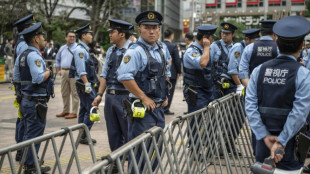
-
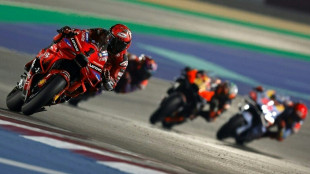 Champion Martin eyes Qatar return as 'bitter' Marc Marquez seeks redemption
Champion Martin eyes Qatar return as 'bitter' Marc Marquez seeks redemption
-
The US citizens still held in Russian prisons

-
 US-Russian ballet dancer Ksenia Karelina freed by Moscow: Rubio
US-Russian ballet dancer Ksenia Karelina freed by Moscow: Rubio
-
Not just penguins on Antarctic islands hit by Trump tariffs
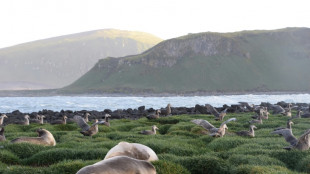
-
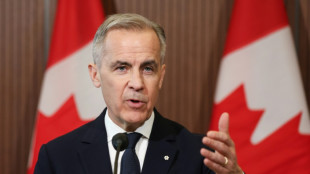 Canada PM says Trump's pause on tariffs a 'welcome reprieve'
Canada PM says Trump's pause on tariffs a 'welcome reprieve'
-
Witkoff and Araghchi: the men leading US-Iran nuclear talks
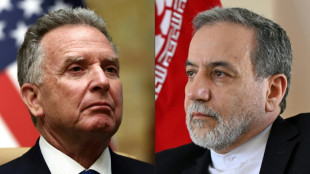
-
 Stocks zoom higher as Trump delays painful tariffs
Stocks zoom higher as Trump delays painful tariffs
-
China urges US to meet 'halfway' as markets rocket on Trump tariff pause
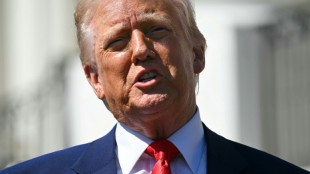
-
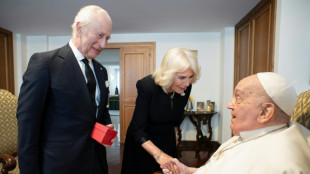 Vatican releases image of Charles, Camilla meeting pope
Vatican releases image of Charles, Camilla meeting pope
-
Waratahs' McKellar rules out becoming next Wallabies coach

-
 Taiwan's TSMC says first quarter revenue up 42 percent
Taiwan's TSMC says first quarter revenue up 42 percent
-
Rybakina leads Kazakhstan to BJK Cup victory over Australia

-
 Vietnam says it will start trade talks with United States
Vietnam says it will start trade talks with United States
-
Expo 2025 in Japan: five things to know

-
 Japan's World Expo touts unity, and algae, in turbulent times
Japan's World Expo touts unity, and algae, in turbulent times
-
Trump's tariff pause gives market relief, but China trade war intensifies

-
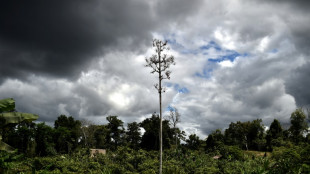 Papua New Guinea lifts ban on forest carbon credits
Papua New Guinea lifts ban on forest carbon credits
-
AI surge to double data centre electricity demand by 2030: IEA
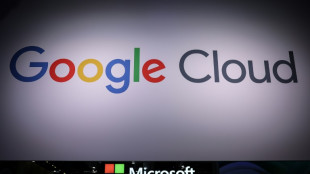
-
 Scheffler, McIlroy seek fast start in hunt for history at Masters
Scheffler, McIlroy seek fast start in hunt for history at Masters
-
Samsung under pressure as US tariffs rattle South Korean economy
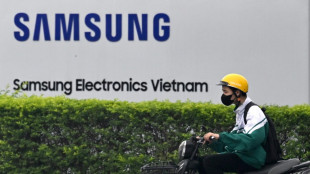
-
 Munster wary of 'chaotic' Bordeaux-Begles in Champions Cup quarter-final
Munster wary of 'chaotic' Bordeaux-Begles in Champions Cup quarter-final
-
Ranieri eyeing Champions League for Roma before derby swansong
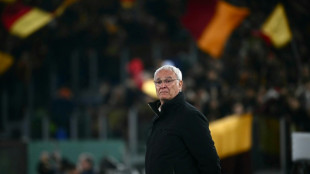
-
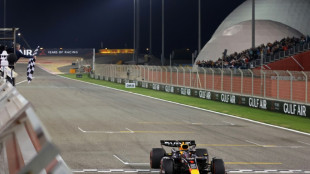 Verstappen out to silence McLaren in the battle of Bahrain
Verstappen out to silence McLaren in the battle of Bahrain
-
Asian stocks crack higher as Trump delays painful tariffs

-
 Cannes to unveil film selection under pressure over industry abuse
Cannes to unveil film selection under pressure over industry abuse
-
Messi scores twice in Miami's frantic comeback over LAFC

-
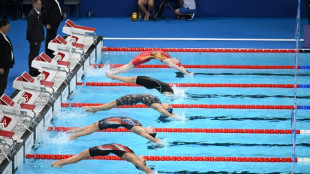 Swimmers get medal boost with new events added for 2028 Olympics
Swimmers get medal boost with new events added for 2028 Olympics
-
Companies keen to start deep-sea mining off Norway

-
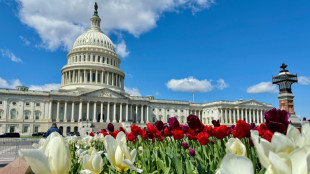 US House votes to limit judges' injunction power
US House votes to limit judges' injunction power
-
Pilgrims in Italy flock to tomb of first millennial saint

-
 China consumer prices slump for second straight month: data
China consumer prices slump for second straight month: data
-
Tearful Doncic scores 45 on return to Dallas as Lakers clinch playoff spot

-
 Hamas leadership operating behind veil of secrecy
Hamas leadership operating behind veil of secrecy
-
Trump stuns with tariff backtrack but hikes China rate to 125%
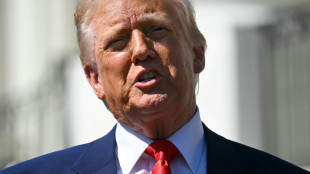
-
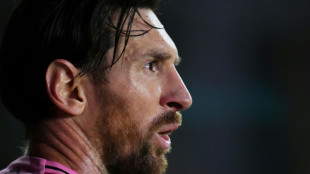 Messi scores twice in Miami's three goal comeback over LAFC
Messi scores twice in Miami's three goal comeback over LAFC
-
Amazon satellite launch scrubbed due to weather
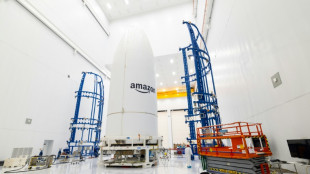
-
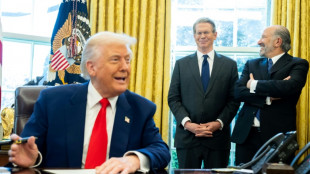 Art of the deal? How Trump backed down on tariffs
Art of the deal? How Trump backed down on tariffs
-
CureVac Announces Financial Results for the Fourth Quarter and Full-Year 2024 and Provides Business Update

-
 Interactive Strength Inc. (Nasdaq:TRNR) Updates Investor FAQ In Response to Shareholder Interest in $15M+ Wattbike Acquisition
Interactive Strength Inc. (Nasdaq:TRNR) Updates Investor FAQ In Response to Shareholder Interest in $15M+ Wattbike Acquisition
-
Nextech3D.ai Signs Letter of Intent to Sell Share Control Block of Toggle3D.ai

-
 U.S. Polo Assn. Celebrates Launch of Field X Fashion, Issue 2, Brand's Award-Winning Global, Digital Magazine Celebrating Sport and Fashion
U.S. Polo Assn. Celebrates Launch of Field X Fashion, Issue 2, Brand's Award-Winning Global, Digital Magazine Celebrating Sport and Fashion
-
Moderna to Report First Quarter 2025 Financial Results on Thursday, May 1, 2025

-
 CMS Chief Dr. Oz's AI Avatar Vision for U.S. Healthcare comes to life through Addison Care
CMS Chief Dr. Oz's AI Avatar Vision for U.S. Healthcare comes to life through Addison Care
-
Evotec SE to Announce Results for Financial Year 2024 on 17 April 2025

Taiwan: Is the "Silicon Shield" collapsing?
Taiwan, long regarded as a linchpin in the global technology supply chain, faces an uncertain future as its vaunted “silicon shield”—the notion that its dominance in semiconductor production deters aggression—comes under strain. The island’s strategic importance, driven by the Taiwan Semiconductor Manufacturing Company (TSMC), which produces over 90% of the world’s most advanced microchips, has historically offered a degree of protection against threats, notably from China. However, recent policies from United States President Donald Trump are raising fears that this shield may be crumbling, leaving Taiwan vulnerable at a time of escalating geopolitical tension.
The Silicon Shield: A Fragile Bastion
The concept of the silicon shield posits that Taiwan’s indispensable role in supplying cutting-edge semiconductors to the world—powering everything from smartphones to artificial intelligence—acts as a deterrent against military action, particularly from Beijing, which claims the island as part of its territory. The theory rests on the catastrophic economic fallout that would follow any disruption to TSMC’s operations, a scenario that would cripple global supply chains and affect major economies, including the U.S. and China itself. For years, this economic leverage has been Taiwan’s unspoken safeguard, complementing its military defences and U.S. support under the Taiwan Relations Act.
Yet, this shield is not impervious. China’s growing military assertiveness—demonstrated by large-scale drills encircling Taiwan in October 2024—and its advancements in domestic chip production have already cast doubt on the shield’s durability. Now, Trump’s aggressive economic strategy is adding a new layer of jeopardy, threatening to erode Taiwan’s technological edge and, with it, the island’s strategic security.
Trump’s Tariff Threat:
Since reclaiming the presidency, Trump has doubled down on his “America First” agenda, targeting Taiwan’s semiconductor industry with a bold and controversial plan. In a speech to Republicans on 27 January 2025, he proposed tariffs of up to 100% on imported microchips, arguing that Taiwan had “stolen” America’s chip industry and that such measures would force production back to U.S. soil. “They won’t want to pay a 25%, 50%, or even 100% tax,” Trump declared, framing the policy as a means to revitalise American manufacturing.
This stance marks a sharp departure from his first term, during which he bolstered Taiwan through arms sales and diplomatic engagement, including a historic call with then-President Tsai Ing-wen in 2016. Now, his rhetoric portrays Taiwan less as an ally and more as an economic rival. His administration has also questioned the $6.6 billion in grants awarded to TSMC under the 2022 CHIPS and Science Act for a factory in Arizona, with Trump dismissing it as a “ridiculous programme.” Such moves signal a transactional approach, echoing his earlier demands that Taiwan “pay” for U.S. defence support.
Economic and Strategic Fallout:
The implications of Trump’s plan are profound. For Taiwan, tariffs would not only raise costs for U.S. importers—likely passed on to consumers—but also jeopardise TSMC’s investments in American facilities, which now total $65 billion. Taiwanese Premier Cho Jung-tai has vowed to maintain the island’s tech leadership, announcing on 28 January 2025 that the government would explore “cooperative plans and assistance programmes” to shield its industry. Economy Minister Kuo Jyh-huei, meanwhile, downplayed the immediate impact, citing Taiwan’s technological superiority, though analysts warn that prolonged pressure could force TSMC to shift more production overseas, diluting Taiwan’s economic leverage.
Strategically, this shift could weaken the silicon shield’s second layer: the reliance of third parties, particularly the U.S., on Taiwanese chips. If Trump succeeds in relocating significant semiconductor production, Taiwan’s role as a global chokepoint diminishes, potentially reducing the incentive for Washington to defend the island. This fear is compounded by Trump’s ambiguous stance on Taiwan’s defence, having dodged questions in 2024 about whether he would intervene if China attacked, instead noting the island’s distance—9,500 miles from the U.S. versus 68 miles from China.
China’s Opportunistic Gaze:
Beijing, which has never renounced the use of force to achieve unification, may see an opening. While China relies heavily on TSMC—despite progress with firms like SMIC—some analysts argue that Taiwan’s chip prowess is less a shield and more a prize, incentivising control over the industry. Trump’s policies could accelerate this calculus. Posts on X suggest a growing sentiment that his approach might “incentivise Taiwan to capitulate” by undermining its economic defences, though such views remain speculative.
Taiwanese officials remain defiant. The foreign ministry, responding to Trump’s tariff threats, reiterated on 28 January 2025 that the Republic of China is a “sovereign and independent country,” dismissing any distortion of its status. President Lai Ching-te, who has stressed the “solid as a rock” U.S.-Taiwan partnership, faces the challenge of bolstering defences—currently budgeted at 2.45% of GDP—while navigating this economic onslaught.
A Shield at Risk:
Taiwan’s silicon shield has never been a guarantee, but Trump’s plan introduces unprecedented pressure. By targeting the island’s economic lifeline, he risks not only disrupting global tech supply chains but also weakening a key deterrent against Chinese aggression. For Taipei, the task is clear yet daunting: reinforce its technological edge, deepen international ties, and prepare for a world where its shield may no longer hold. As the U.S. pivots inward, Taiwan stands at a crossroads, its fate hanging in the balance between economic might and geopolitical reality.
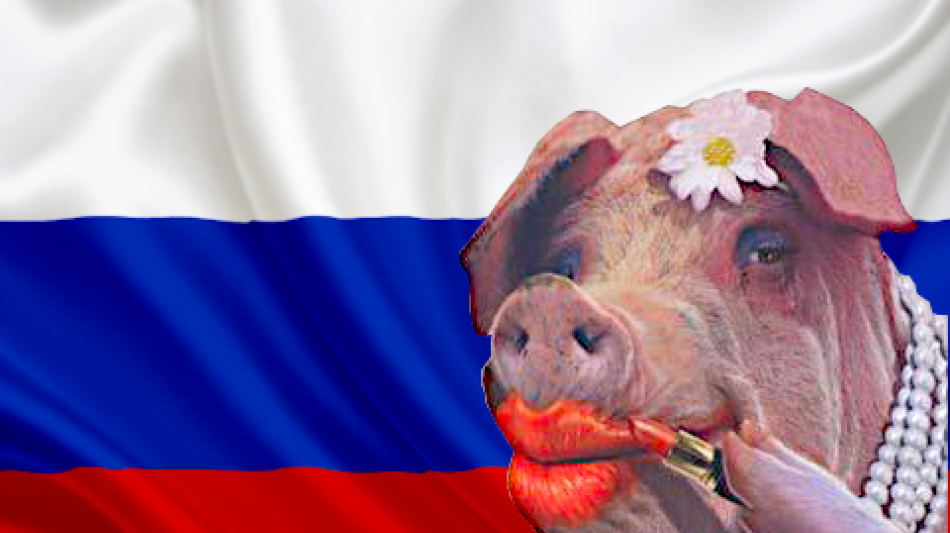
Perverted Russian gets a bashing as flag thief

Россия: Кто придет после преступника Путина?

Thank you Ukraine for the destruction of the Russian terror soldiers!

У российского террористического государства мало боеприпасов

Скоро дроны ВСУ долетят даже до кабинета Путина!

Ukraine: This is how Russian terror soldiers end up!

Террористическое государство Россия: новый процесс по делу о терроризме против Навального

Россия: государство террора!

Россия: Тайна диктатора Путина

Россия: Путин - свинья мира или радости пропаганды убийств

Россия: Преступная "спецоперация" на Украине идет не по плану



